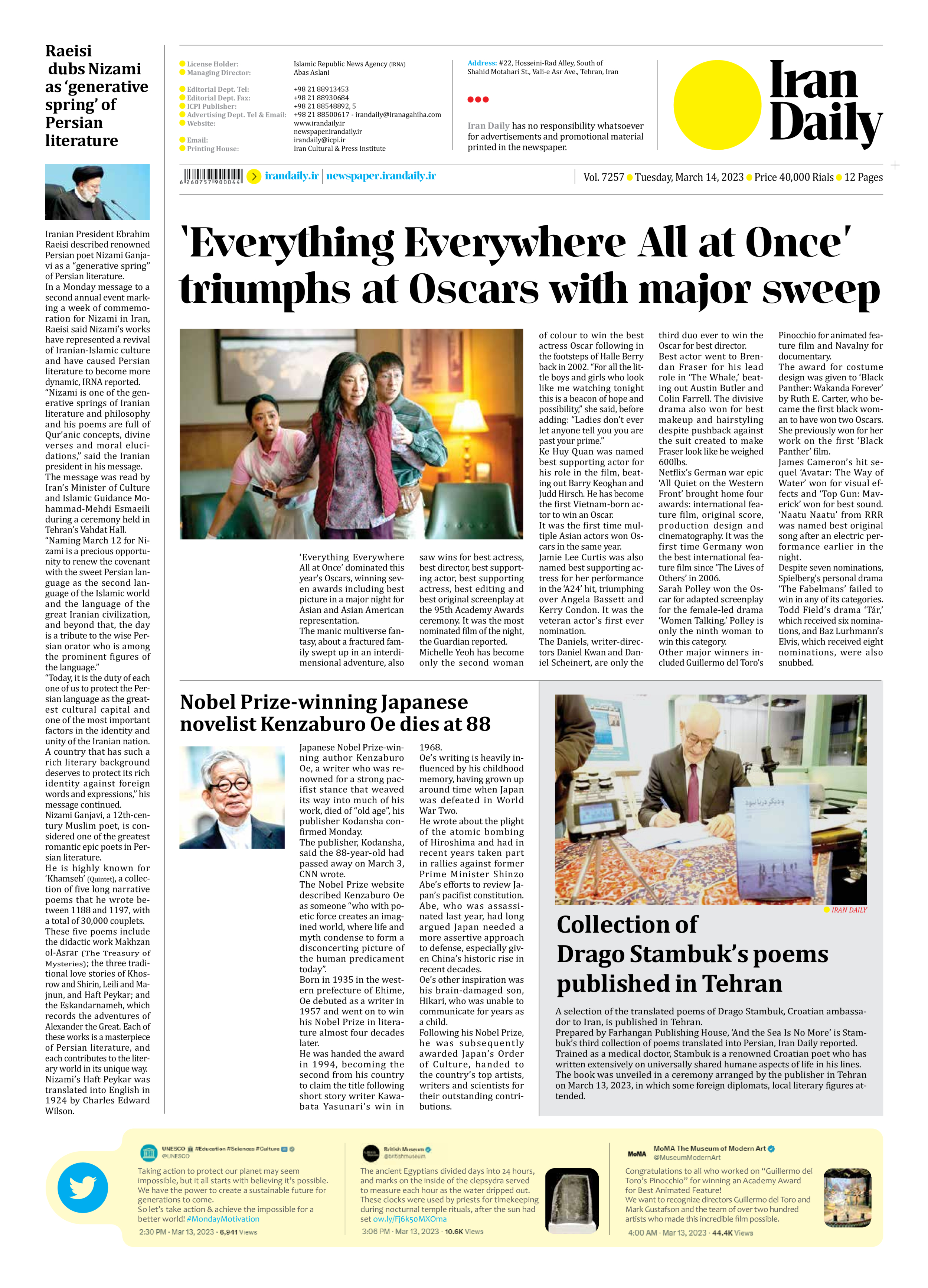
Nobel Prize-winning Japanese novelist Kenzaburo Oe dies at 88
Japanese Nobel Prize-winning author Kenzaburo Oe, a writer who was renowned for a strong pacifist stance that weaved its way into much of his work, died of “old age”, his publisher Kodansha confirmed Monday.
The publisher, Kodansha, said the 88-year-old had passed away on March 3, CNN wrote.
The Nobel Prize website described Kenzaburo Oe as someone “who with poetic force creates an imagined world, where life and myth condense to form a disconcerting picture of the human predicament today”.
Born in 1935 in the western prefecture of Ehime, Oe debuted as a writer in 1957 and went on to win his Nobel Prize in literature almost four decades later.
He was handed the award in 1994, becoming the second from his country to claim the title following short story writer Kawabata Yasunari’s win in 1968.
Oe’s writing is heavily influenced by his childhood memory, having grown up around time when Japan was defeated in World War Two.
He wrote about the plight of the atomic bombing of Hiroshima and had in recent years taken part in rallies against former Prime Minister Shinzo Abe’s efforts to review Japan’s pacifist constitution.
Abe, who was assassinated last year, had long argued Japan needed a more assertive approach to defense, especially given China’s historic rise in recent decades.
Oe’s other inspiration was his brain-damaged son, Hikari, who was unable to communicate for years as a child.
Following his Nobel Prize, he was subsequently awarded Japan’s Order of Culture, handed to the country’s top artists, writers and scientists for their outstanding contributions.







